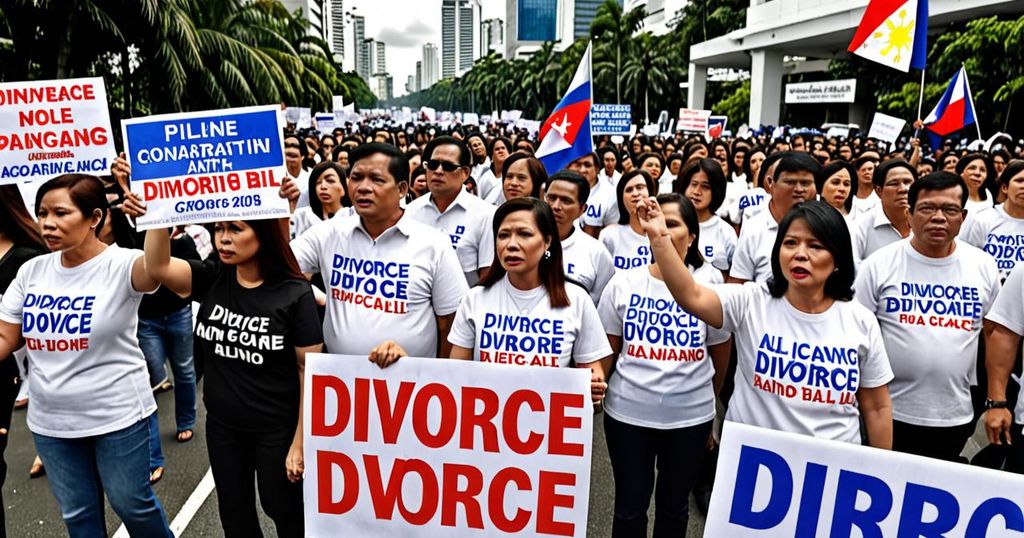The approval of the Philippine divorce bill has been welcomed by women’s rights organizations as a glimmer of hope for many women trapped in abusive marriages. However, the journey to its enactment faces substantial opposition from conservative lawmakers and Catholic groups.
Known as the Absolute Divorce Act, the bill recently passed in the House on its third reading with 131 votes in favor. This represents a significant milestone in the prolonged struggle to legalize divorce in a nation where annulments and legal separations are limited, particularly for women in abusive relationships.
Advocates of the bill contend that legalizing divorce is a crucial step towards freeing women from oppressive and harmful marriages, allowing them to reclaim their dignity and self-esteem. The bill’s passage has revived the hopes of many who have long advocated for this change, including Cici Leuenberger-Jueco, a prominent figure in the lobbying group, Divorce for the Philippines Now.
While proponents of the bill celebrate this progress, opponents, particularly conservative and religious factions, have pledged to challenge its advancement, underscoring the enduring influence of Church leaders and the traditional stance on marriage in the nation. Senator Joel Villanueva is one of the bill’s most steadfast opponents, advocating for greater accessibility to annulments and highlighting the significant financial barrier that many Filipinos encounter when seeking to dissolve a marriage legally.
The conservative position on divorce is deeply entrenched in the country’s history; the Philippines and the Vatican are the only two places worldwide without laws permitting legal divorce. The influence of Catholic doctrine has undeniably shaped prevailing attitudes towards divorce, evident in the resistance against reforming current laws perceived as patriarchal and punitive, particularly towards women in marital conflicts.
For individuals like Cici Leuenberger-Jueco, who has persistently advocated for the reinstatement of divorce in the Philippines, the passage of this bill represents a step towards freedom from the stigma and constraints imposed by current laws. The prospect of obtaining a divorce signifies not only the legal dissolution of a marriage, but also the restoration of names, the opportunity for new love, and, most importantly, the empowerment to break free from abusive relationships.
The upcoming months will prove pivotal as the bill progresses to the senate, where its fate will be determined. The fervent opposition and support surrounding this issue ensure that the battle for the enactment of the divorce bill will continue to unfold in the public sphere, inciting discussions about traditional values, women’s rights, and the evolving nature of marriage and family in Philippine society.

Leave a Reply